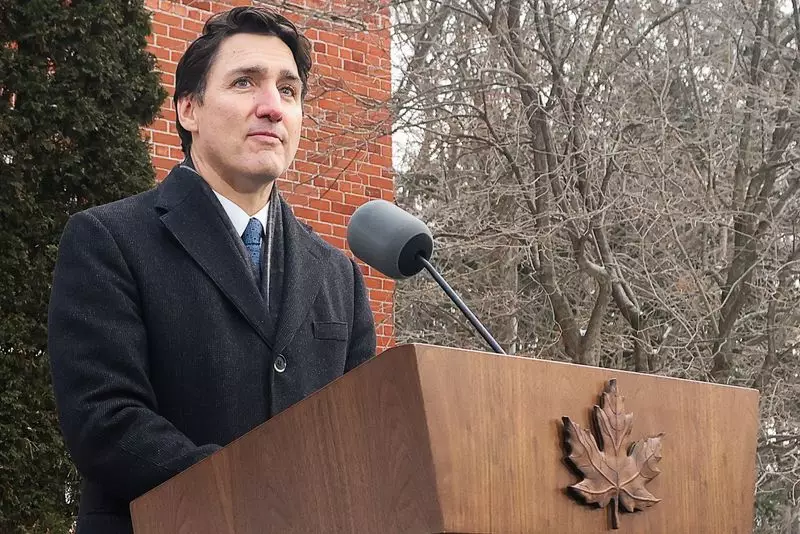As Canada grapples with the looming prospect of significant U.S. tariffs under President-elect Donald Trump’s administration, Prime Minister Justin Trudeau has convened a cabinet retreat aimed at assessing the nation’s strategy. Trump’s proposed 25% tariff on Canadian imports threatens not only the economic stability of Canada but also its crucial trade relationship with the U.S., which absorbs approximately 75% of Canadian exports. This impending crisis has catalyzed discussions among federal and provincial leaders about the best approach to safeguard Canadian interests amidst external pressures.
Economists have warned that implementing such tariffs could plunge Canada into a recession, underscoring the gravity of the situation. The economic interdependence between the two nations has created a complex web of financial relations that could unravel if aggressive tariffs take effect. Ontario Premier Doug Ford has voiced concerns that his province alone could face the loss of up to half a million jobs, emphasizing the risks posed to the manufacturing and industrial sectors central to Ontario’s economy. This stark warning illustrates how localized economic fallout could spiral into broader national issues, demonstrating the interconnected nature of Canada’s economic landscape.
The challenge for Trudeau is not solely navigating international relations but also ensuring a cohesive response from within Canada. Discontent is brewing among provincial leaders who are seeking more decisive leadership from the federal government. The unity among provinces is critical; disagreements could weaken Canada’s negotiating position. Premier Ford’s insistence on collaboration reflects a growing sentiment among provincial leaders that a divided front could result in catastrophic outcomes. His assertion, “We can’t have a divided Canada,” reinforces the necessity for a united federal and provincial strategy.
As discussions intensify, the potential for counterbalancing measures against the U.S. tariffs has emerged. Foreign Minister Melanie Joly has hinted that Canada is not opposed to restricting energy exports to the U.S., a move that could provoke further tensions, particularly with provinces reliant on this economic activity, such as Alberta. Premier Danielle Smith’s fierce resistance to such measures highlights the complexity of maintaining national unity while addressing the stark realities of differing provincial interests.
The upcoming cabinet meeting coincides with Trump’s inauguration, making the timing particularly significant. Trump’s rhetoric regarding Canada’s border security and his provocative suggestion of making Canada a U.S. state signals a need for Canada to bolster its national security measures. In response, Canada has committed to a C$1.3-billion border security plan that prioritizes surveillance and intelligence. This multi-layered approach addresses both economic and security concerns, yet raises the question of how Canada can assert its sovereignty while navigating a potentially aggressive neighbor.
The impending tariffs represent more than just an economic dispute; they encapsulate a broader struggle for Canada to maintain its integrity and define its place on the global stage. As Trudeau leads the cabinet retreat, the need for a unified Canadian response is paramount. The outcome of this meeting could determine not only the nation’s economic future but also the integrity of its interstate relationships and political cohesion moving forward. Only through a concerted effort can Canada hope to safeguard its interests and fortify its position against external pressures.

